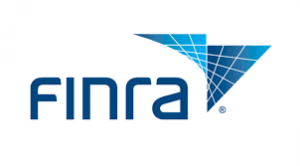
On May 6, 2022, FINRA released a “Discussion Paper – Expungement of Customer Dispute Information” (the “Discussion Paper”) to address what FINRA clearly sees as problems with the current system for expunging customer complains. Let’s be clear from the outset, FINRA is openly hostile to the expungement of customer complaint information. FINRA is particularly hostile to what they describe as “straight-in” expungement arbitrations where the financial advisor seeks expungement by naming their firm as the respondent (typically after a customer arbitration has settled).
As many practitioners know, FINRA passed an amendment, effective September 14, 2020, establishing a minimum filing fee for expungement arbitrations. The Discussion Paper touts the success of this amendment in reducing the number of straight-in expungement actions by 37% between 2019 and 2020. Thus, FINRA makes it clear that its goal is reduction of expungement claims rather than making sure the claims have merit.
The tone of the Discussion Paper starts off somewhat defensive as FINRA makes sure to let the public know how few expungements are actually awarded every year. Between January 2016 and December 2021, approximately 8 percent of financial advisors registered with FINRA had a customer dispute disclosure on their record and only 1 in 10 had customer dispute information expunged during that time period. If expungement of customer dispute information is so rare, it is hard to understand why FINRA has as they put it, “engaged in longstanding efforts with NASAA and state securities regulators to explore a redesign of the current expungement process.” I recently blogged about the Alabama Securities Commission’s (“ASC”) intervention into an expungement award confirmation proceeding and the ASC’s very dim view of the “straight-in” expungement process. In light of the intervention and then the subsequent release of this Discussion Paper, it seems likely that more state regulators than just Alabama are unhappy with the current expungement system.
The Discussion Paper notes that FINRA filed a new rule proposal with the SEC in September 2020 known as the “Special Roster Proposal.” The Special Roster Proposal entailed a number of measures that would make expungement of customer dispute information more difficult. For example, the Special Roster Proposal would:
- as its name implies, create a roster of arbitrators with specialized training,
- require a three member panel, and permit no strikes or stipulations to remove an arbitrator,
- set time limits to prevent expungement after more than six years from the complaint or two years from the close of a customer arbitration,
- provide notice to state regulators upon the filing of an expungement request, and
- require financial advisors, when an arbitration has been filed, to seek expungement from the same panel that hears the arbitration.
On May 18, 2021, FINRA withdrew the Special Roster Proposal from the SEC’s consideration “in response to concerns raised by the SEC staff . . . .” The Discussion Paper provides no insight as to what those concerns are but states FINRA’s intention to continue pursuing the Special Roster Proposal, and to “continuing discussion with NASAA . . . regarding a more fundamental redesign of the current expungement process . . . .”
To that end, the Discussion Paper raises a number of possible changes to the existing expungement process, including measures such as raising the standards for awarding expungement set forth in FINRA Rule 2080. FINRA is also considering altering what firms’ and financial advisors’ have to disclose in the first instance, presumably expanding the current universe of required disclosures. FINRA makes clear, however, that it plans on moving forward on a dual track approach. In the near term, FINRA wants to implement the Special Roster Proposal, presumably after addressing whatever concerns the SEC had. In the long term, FINRA wants to completely redesign the expungement process by doing away with arbitration of expungement of customer dispute information entirely and to rely instead on FINRA and state securities regulators to determine what disclosures can be expunged. The Discussion Paper raises many questions about how this “Administrative Process” would work and what it would look like. FINRA also acknowledges that implementing such a process is going to require SEC approval and possibly Congressional action. Putting the details aside, however, the Discussion Paper makes it clear that administrative control over expungement is what FINRA wants for the future.
Herskovits PLLC has a nationwide practice representing registered representatives with Form U4 and Form U5 expungement claim. Feel free to contact us at 212-8907-5410.
 FINRA Lawyer Blog
FINRA Lawyer Blog

